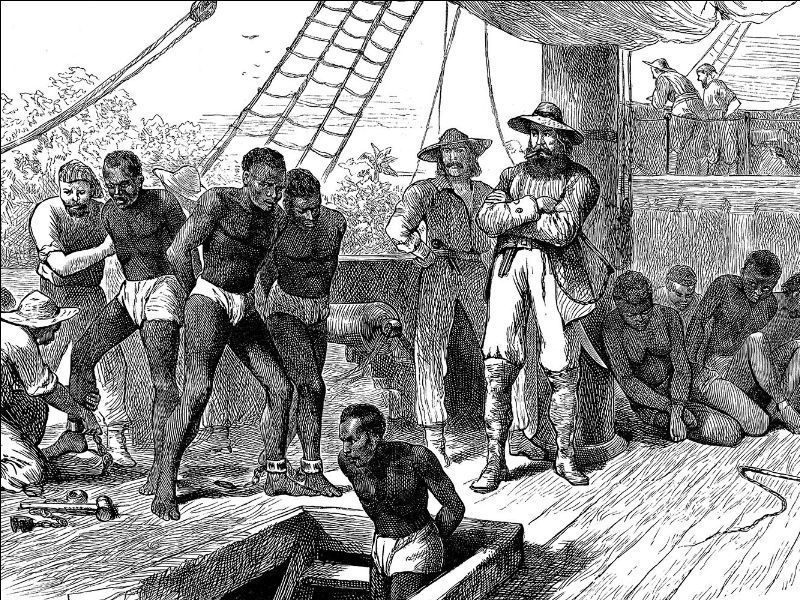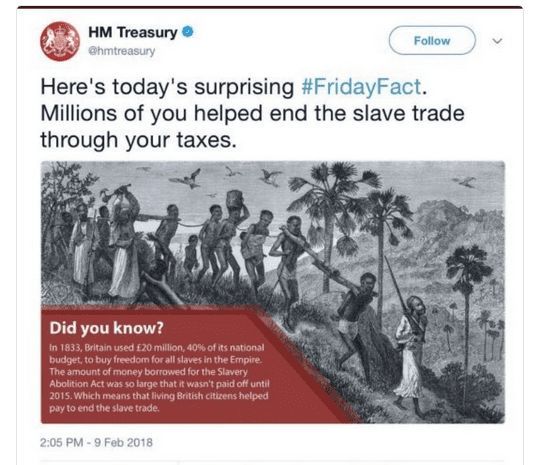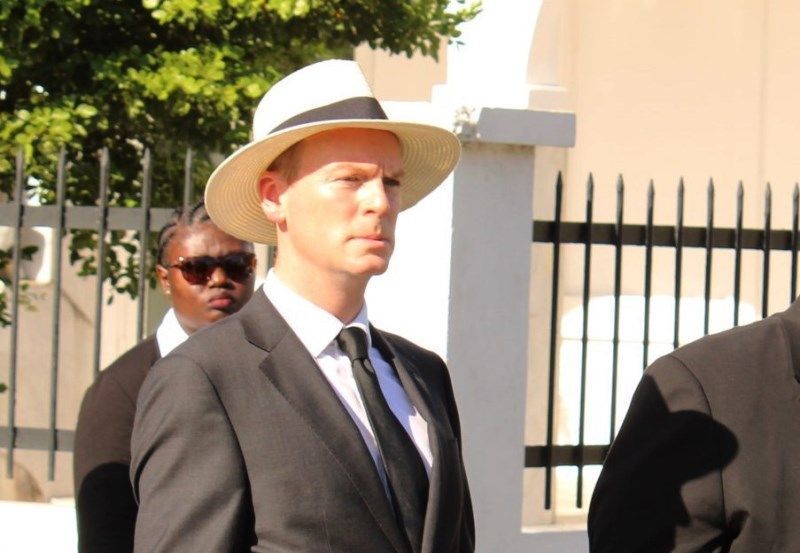
Britain continues to benefit from transatlantic slave trade- Dr Ahmed N. Reid
Dr Ahmed N. Reid was at the time speaking at the Black History Month Panel Discussion hosted by St Kitts and Nevis’ Reparations Committee on February 22, 2021.
He referenced a tweet sent out by Her Majesty’s Treasury on February 9, 2018, which revealed that “In February 2015, the British Government completed repaying the loan of 20 million pounds that it borrowed to compensate enslavers so that they would agree to the emancipation of the enslaved people in 1834.”
The modern equivalent of £17bn was paid out to compensate slave owners for the loss of their human property.
 According to Dr Ahmed N. Reid, there is a
shocking revelation that taxpayers in Britain including hundreds of
thousands of Caribbean nationals whose ancestors were enslaved by the
British and whose labour helped to build Britain, helped to pay the
interest payments on the loan that paid the socially and politically
connected enslavers.
According to Dr Ahmed N. Reid, there is a
shocking revelation that taxpayers in Britain including hundreds of
thousands of Caribbean nationals whose ancestors were enslaved by the
British and whose labour helped to build Britain, helped to pay the
interest payments on the loan that paid the socially and politically
connected enslavers. ‘Disturbing’ tweet
He continued, “Positioned as ‘Did you know,’ the tweet claimed that in 1833, Britain used 20 million pounds, 40 percent of its national debt to buy freedom for all slaves in the empire.”
Dr Reid continued quoting Her Majesty’s Treasury saying that “The amount of money borrowed for the Slavery Abolition Act was so large that it wasn’t paid off until 2015, which means that living British citizens helped pay to end the slave trade.”
“Apart from its self-congratulatory tone, the tweet is troubling and distasteful on many levels,” he said.
 The ‘troubling and distasteful’ tweet was
made by the United Kingdom Treasury on February 9, 2018. After it was
met with outrage from the public, it was subsequently deleted.
The ‘troubling and distasteful’ tweet was
made by the United Kingdom Treasury on February 9, 2018. After it was
met with outrage from the public, it was subsequently deleted. Descendants of slaves helped pay back UK reparation loan
“First, there is a shocking revelation that taxpayers in Britain including hundreds of thousands of Caribbean nationals whose ancestors were enslaved by the British and whose labour helped to build Britain, helped to pay the interest payments on the loan that paid the socially and politically connected enslavers,” Dr Reid said.
He further said the tweet shows the intergenerational link with slavery saying that “This tweet is evidence of an incontrovertible truth that the descendants of enslavers continue to benefit today from slavery.”
He added, “According to a report in the British newspaper ‘The Guardian’, most of the bonds are owned by small investors. Of the 11,200 holders, 7,700 invested all less than 1000 nominal and 92 percent of holders owned less than 10,000 pounds each.”
“Britain and those who invested in slave abolition bonds, continue to benefit today,” said Dr Reid.
 Ex-governor Augustus J. U. Jaspert had
caused a stir late 2020 when he suggested that landmarks in the VI named
after persons who perpetrated chattel slavery should be preserved.
Ex-governor Augustus J. U. Jaspert had
caused a stir late 2020 when he suggested that landmarks in the VI named
after persons who perpetrated chattel slavery should be preserved. No slavery reparations for VI
Meanwhile, the UK recently supported the position of ex-governor Augustus J. U. Jaspert that the VI should not expect any reparations for slavery.
Mr Jaspert had also caused a stir when he suggested that landmarks in the VI named after persons who perpetrated chattel slavery should be preserved.










